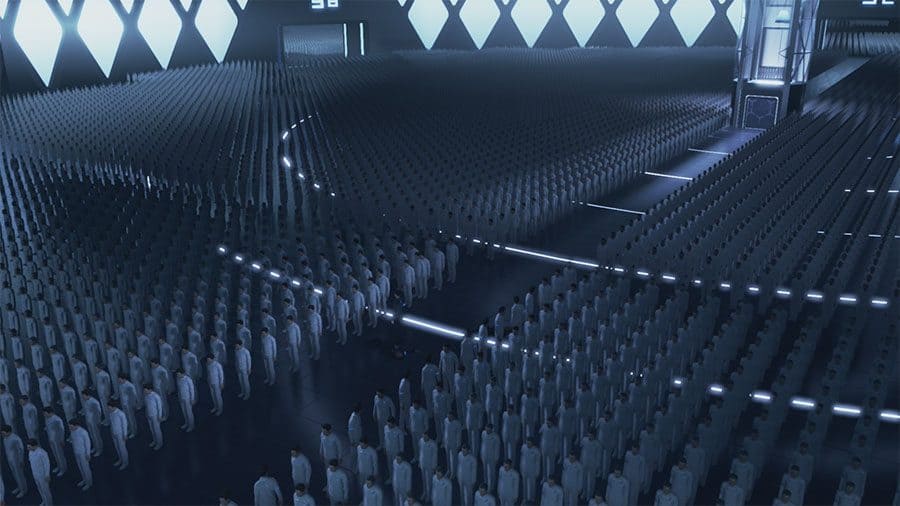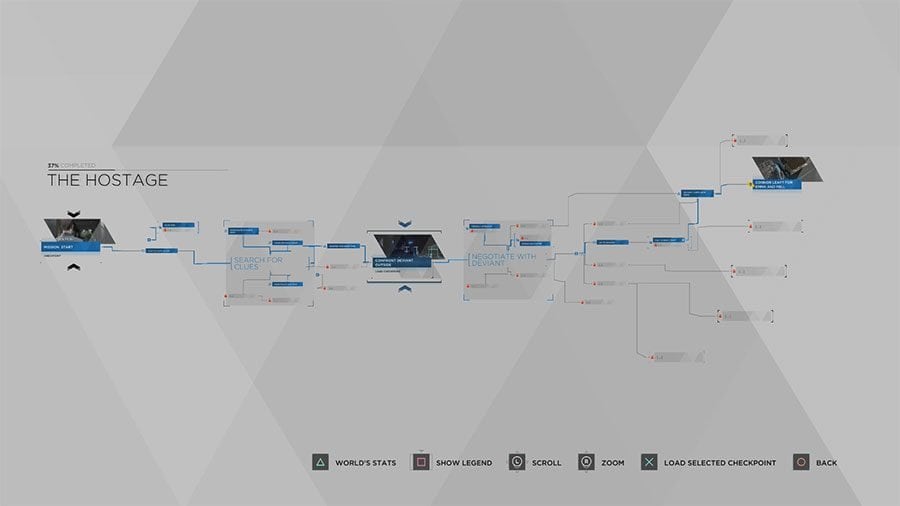Detroit: Become Human Review

Official Score
Overall - 90%
90%
Detroit: Become Human is a stellar example of storytelling in the video game space. What initially seems like a futuristic science-fiction story quickly steers into a very real struggle of freedom vs. oppression which has been endured throughout history. With just one single playthrough, Detroit: Become Human will warm your heart, provoke your thoughts, and light a fire in your stomach.
Detroit: Become Human is the latest effort of creative storytelling from the development team behind Heavy Rain, Quantic Dream. Set in an almost twisted dystopian Detroit, the game follows the story of three playable characters and a revolution that would change the course of history, for humans and androids alike.
Detroit: Become Human Review
[line style=’solid’ top=’10’ bottom=’10’ width=’100%’ height=’1′ color=’blue’]Set in a futuristic Detroit in 2038, Detroit: Become Human presents a possible future where mankind has created androids with a level of artificial intelligence capable of fulfilling human roles in practically any industry. While the rich revel in the delights of humanoid slaves to complete every task and fulfill every desire, the poor and working class suffer with a lack of jobs and a struggling support system.
Amidst increased disdain from the increasingly concerned population, androids often suffer abuse and torment at the hands of their owners. It is this growing trend that causes the rise of deviants, names given to androids that have broken through their source code and are a no longer shackled by the restraints of mankind’s control.

Taking the center stage of the storytelling component of Detroit: Become Human is a star studded cast of characters alongside a stellar script written over the course of two years by David Cage. The plot follows the lives and journey of three unique androids, each of which has their own desire to live a life of freedom, breaking away from the slavery enforced by the human population. Kara, a female android sold as a basic housekeeper, develops a mother-daughter type bond with a child, Alice, as they reach for the border to attempt to escape the oncoming oppression. Connor, a RK800 prototype designed to track down and eliminate deviant threats, works alongside Hank Anderson (brilliantly played by Clancy Brown), a bitter detective struggling with the loss of his son in a downward spiral of alcoholism and depression. Finally, there’s Markus. Purchased as a unit to care for a dying old man, Markus learns first-hand that humans can be compassionate, understanding, and accepting, traits he carries with him as he attempts to incite an android revolution.
Detroit: Become Human is a story of choice and consequence, a story that will test your moral compass to the fullest. Each segment of the game is broken up into playing one of the three unique characters, with a variety of choices and dozens of branching options based on those choices. Following the completion of each segment, the player is shown the choices they made, the opportunities they missed, and potential hints for how to do things differently next time.

A game like Detroit: Become Human lives and dies on the ability to immerse players into the stories and environments presented to them. We’ve all seen when something as crucial as lip syncing and facial expressions fail (I’m looking at you, Mass Effect), but it’s something Quantic Dream has executed well in the past. Thankfully, that trend continues in Detroit: Become Human. Hank Anderson looks, feels, and behaves like Clancy Brown. Likewise, Markus’ character (played by Jesse Williams) demonstrates many of the actors facial expressions and vocal habits throughout. Between the level of detail in the facial expressions of the characters and the emotional drive behind each characters’ eyes, Quantic Dream has laid out a banquet of emotional immersion rarely seen in the medium.
On the surface, Detroit: Become Human’s gameplay is a little lackluster and dull. For the entirety of the game, players will walk around, interacting with objects and working their way through quick-time events. However, many of these events are both exciting and rewarding, albeit a little chaotic in the more intense moments. Typically, such predictable mechanics would hamper the games overall value and quality, but Detroit: Become Human makes no attempt at delivering cutting-edge gameplay. Instead it opts to immerse players in a true struggle for freedom, with characters that feel unique and fleshed out on every level.

Detroit: Become Human is a stellar example of storytelling in the video game space. What initially seems like a futuristic science-fiction story quickly steers into a very real struggle of freedom vs. oppression which has been endured throughout history. With just one single playthrough, Detroit: Become Human will warm your heart, provoke your thoughts, and light a fire in your stomach.
[infobox style=’success’ static=’1′]This review of Detroit: Become Human was done on the PlayStation 4. The game was purchased digitally.[/infobox][blogger ids=” cat=’honest-game-reviews’ orderby=’date’ order=’desc’ count=’4′ descr=’200′ readmore=’1′ rating=’1′ style=’image_large’ border=’0′ dir=’vertical’]